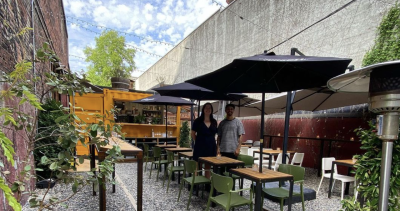As homelessness rises in Metro Vancouver, advocates call for more rental housing units
There's been a 30 percent increase in homelessness in the Lower Mainland over the past three years, according to numbers released today.
The preliminary data report reveals that 3,605 were homeless on March 8, including 1,032 who did not have shelter.
That's 828 more than were determined to be homeless in a similar snapshot survey in Metro Vancouver three years ago.
More than one-third of all those who were homeless this year were of aboriginal ancestry. Just under one-quarter were 55 years of age or older. Another 16 percent were under the age of 24.
The research was conducted by the B.C. Non-Profit Housing Association and M. Thomson Consulting.
BCNPHA CEO Kishone Roy said in a news release that there needs to be "significant investments in new affordable housing". In addition, he called for maintenance of the existing housing stock and coordination of support services for those who are homeless.
"As homelessness has increased in our region, the calls for greater and urgent government action are getting louder," Roy added. "Both the federal and provincial governments, have recently made significant investments but even these are insufficient to address our affordable housing backlog."
These statistics were released shortly after the B.C. Rental Housing Coalition released a B.C. Affordable Housing Plan.
It calls for $1.8 billion in annual investments over a 10-year period to address the housing crisis.
The report begins by laying out the problem:
• a minimum of 6,860 people experiencing homelessness across the province;
• 117,000 households needing help to afford their rental units;
• 80,000 units needed to address the backlog; and
• 7,000 units of rental housing needed per year over the next 10 years.
Of those rental units, half would be market, another 1,150 would be for "missing middle households", and 2,350 would address core-need households.
The greatest homelessness per capita is in Squamish, at 11.1 per 1,000 residents, followed by Nelson at 10.3 per 1,000 residents, and Terrace at 9.5 per 1,000 residents.
The report recommends supporting the regeneration of privately owned purpose-built rental dwellings. That's because most of them were built between 1960 and 1980 and many "are falling into disrepair".
"If we are to meet the supply targets set out in the Plan, the number of homes available in the private rental housing sector must increase," the report states. "This will require the redevelopment of existing properties given the lack of developable land in many communities across the province."
It suggests that local governments can increase the supply by "amending municipal rate of change regulations to ensure that careful redevelopment can occur and that new rental supply is prioritized for permitting, approvals and rezoning".
"We encourage the Provincial government to consider a range of measures to improve supply regeneration, including reducing fees on new rental construction and improving its tax treatment," the report adds.
It also calls for a provincial renters' grant.
"This would replace a web of current programs and allow government to deliver effective support to those most in need by stabilizing them in their current housing, rather than building them new homes," the report states. "Likely, such a benefit would offer government administrative efficiencies that could be used to enhance the amount offered under current programs. This initiative could also be paired with the proposed federal portable housing benefit."
Other recommendations include developing a poverty-reduction strategy, ensuring that all housing policies consider the needs of indigenous peoples, expanding carbon-offset and other energy-efficiency programs, and adopting a housing-first strategy to support "chronic and episodically homeless people".
There are also calls for expanding shared-equity home ownership and integrating land-use planning and transportation funding.
The B.C. Rental Housing Coalition is comprised of the B.C. Non-Profit Housing Association, the Co-op Housing Federation of B.C., Landlord B.C., Vancity, UBC School of Community and Regional Planning, B.C. Seniors Living Association, B.C. CEO Network, B.C. Society of Transition Houses, Tri-cities Homelessness and Housing Task Group, Tenant Resource Advisory Centre, and Ready to Rent B.C..















Comments